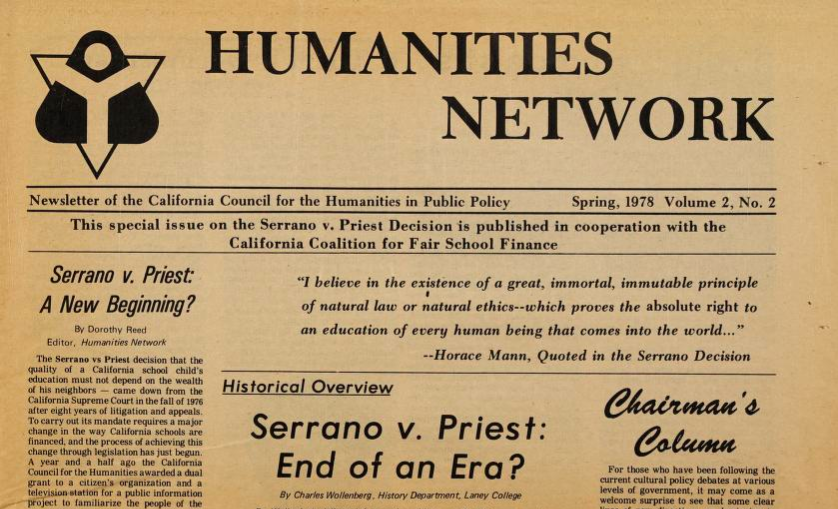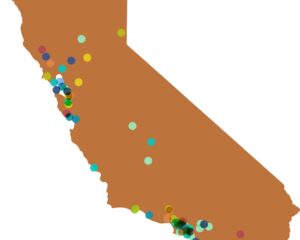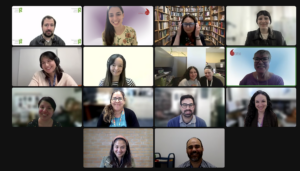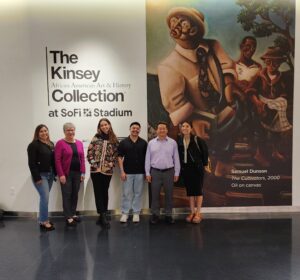In 2020, California Humanities turns 45. We are celebrating this birthday, like many do, by taking stock of the past and reminding ourselves of all the incredible things we’ve had the opportunity to bear witness to and be a part of for the past four and a half decades. To help us out, we hired archivist Debbie Kahn to help us sort through the physical and digital ephemera stored in boxes and on our servers throughout our offices in Oakland and Los Angeles, to help us organize and make sense of the road we took to get us here.
And what a road it was too. The archives are extensive, featuring decades of annual reports, photographs, videos, press clippings, promotional materials from past programs, and such “vintage” media as VHS, 16mm film prints, audio cassettes, and more. They also include over 100 issues of our print newsletter, the Humanities Network, featuring images, opinion pieces, reviews, interviews and more relating to the humanities field throughout California. The lion’s share of these are available for free online at the Internet Archive.
The oldest newsletter archived online, from 1978, is a humble affair, printed in black ink on fading newsprint. The issue largely focused on Serrano vs Priest, a California Supreme Court ruling that paved the way for major change in public school funding, with articles by guest contributors from UC San Diego and Laney College in Oakland. In the same issue: a list of grants awarded, with titles such as “Community-based Alternatives to Incarceration in California,” “Migrant Alien Worker Conference,” “The Athlete and the Emergence of Modern Spirit,” and “Indian Treaty Rights and Sovereignty: A Legacy in Perpetuity.”
Among other stories and topics covered in these newsletters, here are just a few highlights, selected by several of our staff:
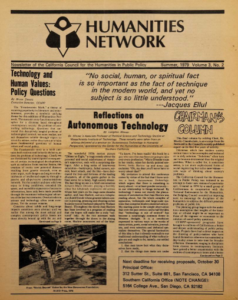
Forty years ago, an issue we published talked about technology and human values. Wrote former Executive Director Bruce Sievers, “The ‘Frankenstein Myth’… functions as a metaphor for a dilemma faced throughout contemporary society: the problem of controlling technology.” This story shows interesting continuities as well as changes over time.
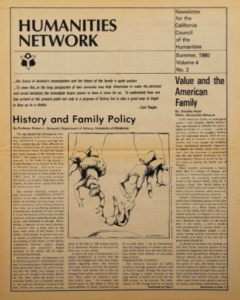
In the summer of 1980, we published a whole issue on families. The header reads: “The future of women’s emancipation and the future of the family is quite unclear,” and articles include “History and Family Policy,” “Value and the American Family,” and “Literature, Responsibility and the Family.” The overarching theme is that women’s values at the time were changing and taking women outside of the home, which strikes us as somewhat old-fashioned, despite how recent this seems.
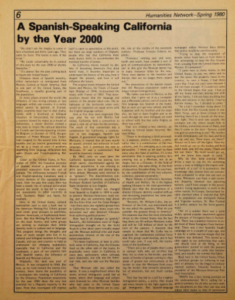
In the Spring of 1980, there was an issue on immigration showing that we are facing many of the same issues that we did more than thirty years ago. The issue includes the first-ever full transcript of a radio production that was funded by the California Council for Humanities in Public Policy (as we were called then). The program, titled “A Spanish-Speaking California by the Year 2000,” was produced and narrated by Danny Tobias and executive produced by Leo C. Lee, founder of Western Public Radio, a San Francisco-based public radio training program. An excerpt: “This program brings the thoughts and ideas of many people who live in bicultural and bilingual societies in Europe, Canada, and our own country to help us understand our changing population, especially that in California and the Southwest, a part of our country rich with Spanish names, the influence of Spanish and Mexican culture.”

